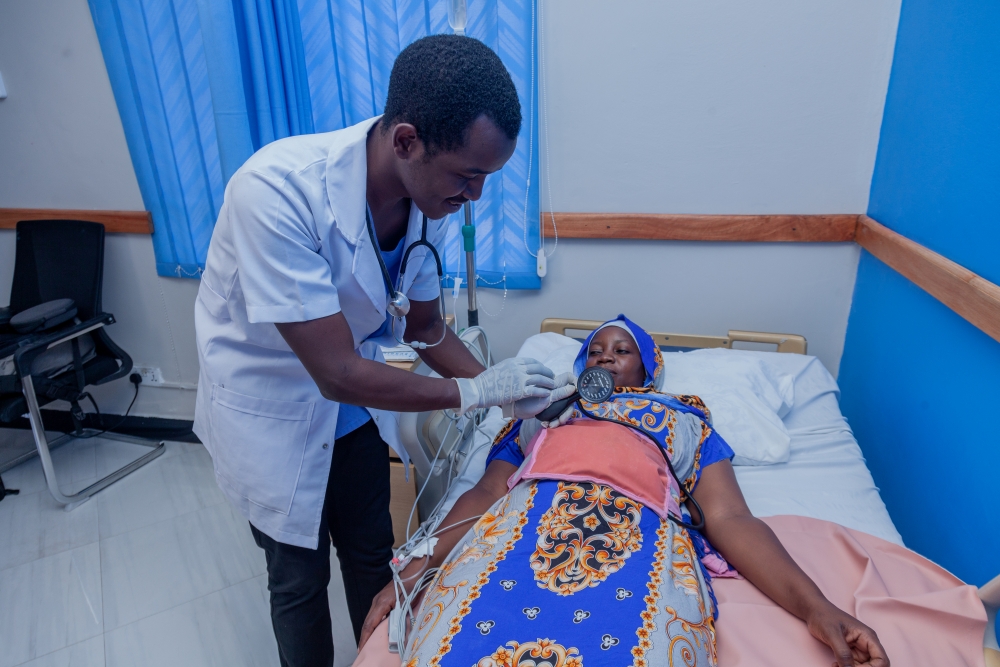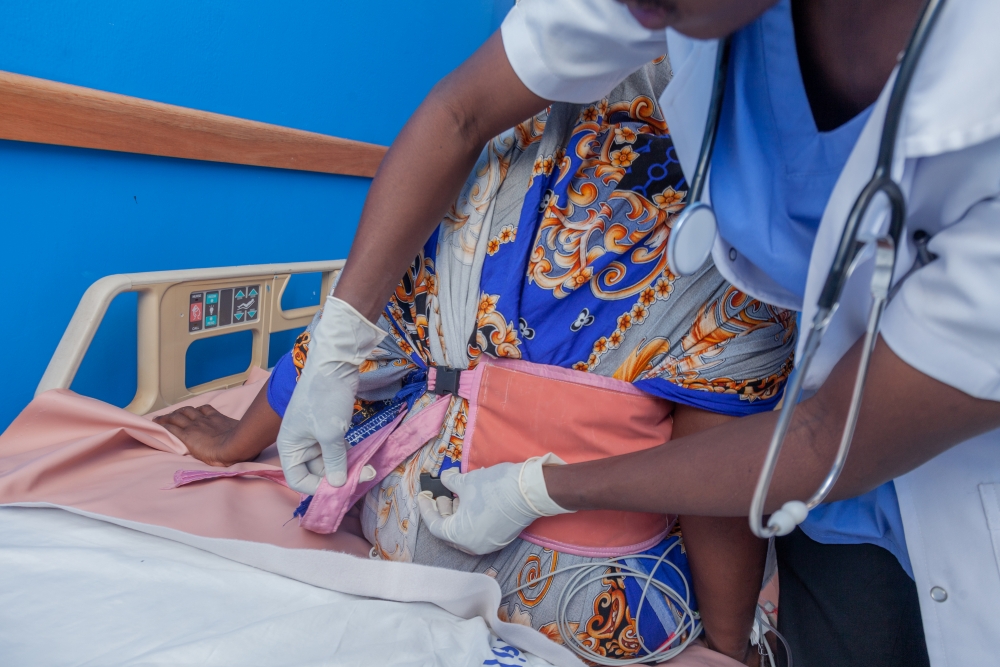Postpartum haemorrhaging is a leading cause of maternal mortality, especially in low-resource settings such as rural Tanzania. Worn like a belt around the abdomen, Mkanda Salama massages the uterus and compresses the abdominal aorta to reduce blood loss, saving lives of mothers and babies after delivery and during transport.
Paschal’s story
Paschal, born and raised in Tanzania, experienced the devastating impact of maternal mortality at an early age, after the loss of a family member who died from a postpartum haemorrhage because the closest hospital was over 100 kilometres away.
Later in life when Paschal joined medical school, he realised that maternal mortality caused by postpartum haemorrhage was a widespread issue, not only in Tanzania but in many countries in Africa, because of the blood lost enroute to a hospital or other medical facility and time taken to reach trained practitioners. This life experience, combined with enhanced knowledge gained through medical school, led Paschal and his team of four cofounders and fellow medical students to create Afya Lead, the company behind the Mkanda Salama innovation.
The innovation
As a medical student, Paschal learned about existing medical devices designed to address postpartum haemorrhage. He realised that all these are costly, require high medical expertise and training, and are inserted into the patient, exposing them to risk of infection.
When designing Mkanda Salama, Paschal, and his cofounders wanted to ensure it was a solution to stop maternal bleeding effectively. Their solution also had to require minimal training and skill so that local healthcare facilities, ambulances, and even civilians or community healthcare workers would be able to intervene and potentially save the mother’s life.
Mkanda Salama is an innovative, yet easy to use, belt-like device applied to a patient experiencing postpartum haemorrhage following birth. Applied externally around the abdomen, the wrap involves a compression component that applies enough pressure to stop/reduce bleeding. It also contains a component that massages the uterus to stop the bleeding – a key feature as excessive bleeding after childbirth is often because of retained placental materials.
Manufactured locally by Paschal and his team, the Mkanda Salama wrap is made using Mackintosh and fabric materials to add comfort when worn and, most importantly, produced in a cost-effective way, so it is cheap to purchase, and accessible to as many as possible.
Making a difference
To date, the Mkanda Salama has been used by over 500 people, and has proved to be extremely effective. After a pilot study of 120 women using the Mkanda Salama device, the device was shown to be 85% effective.
The team at Afya Lead plan to scale the innovation to sub-Saharan African where postpartum haemorrhage accounts for 33% of all maternal deaths. Paschal also wants to take Mkanda Salama worldwide so that everyone has access to this lifesaving device.

After experiencing first-hand at an early age the death of my cousin because of postpartum haemorrhage and seeing that the tools available as a medical student required high levels of training and skill, I knew an innovation was needed to save lives more easily. The Africa Prize will allow us to network with different investors and meet large scale manufactures who can help us deal with our demand.


